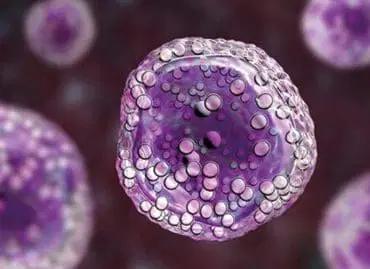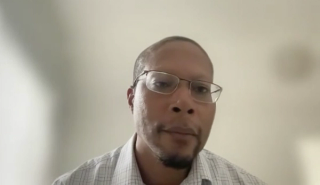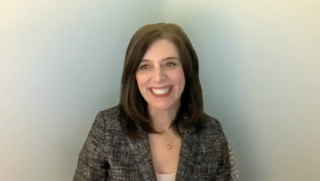
Non-Hodgkin Lymphoma (NHL)
Latest News
Latest Videos
CME Content
More News
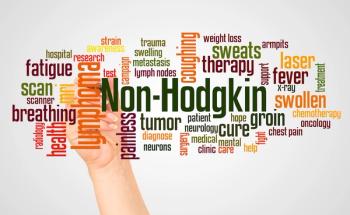
The findings suggest assessment of CD20 may be an important factor in determining treatment options in B-cell lymphomas.
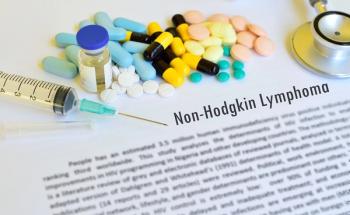
Elevated LDH and higher international prognostic index were also predictors of poor outcomes on bispecific antibodies, investigators found.
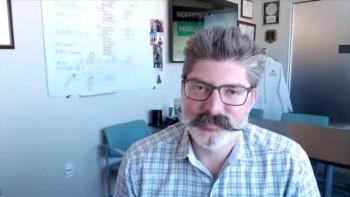
The ALPHA3 trial is exploring cemacabtagene ansegedleucel's (cema-cel) potential to enhance outcomes in patients who have relapsed/refractory large B-cell lymphoma, particularly those positive for minimal residual disease.
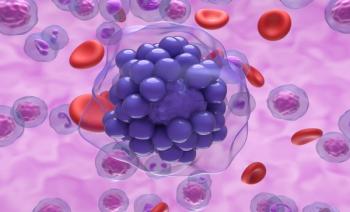
A systematic review and subsequent expert review gave comprehensive insight into prognostic factors for patients receiving treatment for relapsed or refractory diffuse large B-cell lymphoma (DLBCL).
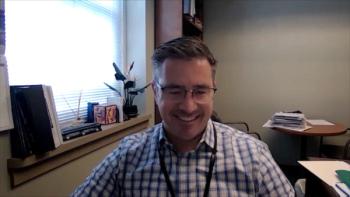
Future research into non-Hodgkin lymphoma treatments needs to explore long-term outcomes and a better understanding of the biologic rationale for various treatments, explained ECHELON-3 principal investigator Craig A. Portell, MD, of UVA Health.
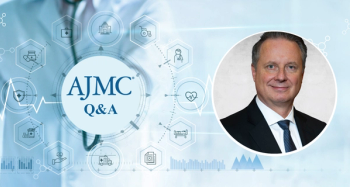
Multidisciplinary efforts help promote the success of clinical trials and innovation for patients with various forms of lymphoma, explained Andrew Evens, DO.

To better treat adolescent and young adult (AYA) patients with various subtypes of Hodgkin and non-Hodgkin lymphomas (NHL), Andrew Evens, DO, speaks to the importance of primary care, screening access, and research.

In part 4 of an interview with The American Journal of Managed Care®, Frederick L. Locke, MD, provides insight on the design of the ALPHA and ALPHA2 trials, which are investigating the chimeric antigen receptor T-cell therapy (CAR T) cemacabtagene ansegedleucel (cema-cel) in relapsed/refractory large B-cell lymphoma.

A majority of cases of diffuse large B-cell lymphoma (DLBCL), the most common type of non-Hodgkin lymphoma globally, are diagnosed in patients 65 years and older; these patients are a heterogeneous group, and few studies have investigated how their outcomes are influenced by patient characteristics and care management regimens.

ECHELON-3 (NCT04404283) principal investigator Craig A. Portell, MD, speaks to the significance of this triplet approval from February as an alternative to more complex and time-consuming regimens in the setting of relapsed/refractory large B-cell lymphoma (R/R LBCL).

Clinical approaches to non-Hodgkin lymphoma in younger and older patient groups generally do not differ, according to Andrew Evens, DO, but he emphasized the need for deeper clinical insights into potential biologic differences in younger oncology patients.

Adolescent and Young Adult Cancer Awareness Week serves as an opportunity to shed light on the special considerations and experiences of younger oncology patient populations.
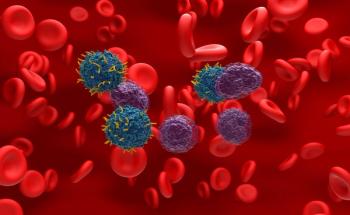
In this comparative analysis, patients with relapsed/refractory large B-cell lymphoma (R/R LBCL) received bridging therapy via radiation or systemic treatment while their chimeric antigen receptor T-cell therapy (CAR T) was being manufactured.
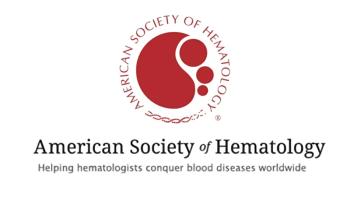
The American Society of Hematology (ASH) was already looking to expand its Bridge Grant program when changes to the National Institutes of Health (NIH) funding landscape created greater urgency.
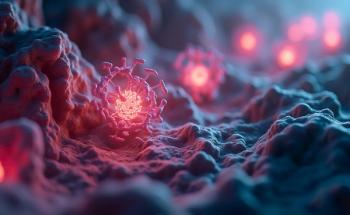
Data incorporated for this study were collected from 9 centers in the UK focused on third-line and beyond chimeric antigen receptor (CAR) T-cell administration in patients with relapsed/refractory large B-cell lymphoma (LBCL).

Cemacabtagene ansegedleucel, an allogeneic chimeric antigen receptor (CAR) T-cell therapy, is being investigated in relapsed/refractory large B-cell lymphoma.

An early pilot trial suggests that combining atezolizumab (tecectriq) with rituximab (Rituxan), gemcitabine (gemzar) and oxaliplatin (eloxatin; GemOx; R-GemOx+Atezo) could be a well-tolerated and effective treatment option in non-Hodgkin lymphoma.

Fred Locke, MD, Moffitt Cancer Center, explains why this hematologic cancer is such an attractive target for chimeric antigen receptor (CAR) T-cell therapy, specifically allogeneic, which uses healthy donor cells.

Adverse physical functions were indicative of reduced survival and increased risk of immune effector cell–associated neurotoxicity syndrome (ICANS) in patients with non-Hodgkin lymphoma (NHL) previously treated with chimeric antigen receptor T-cell therapy.

On February 13, Allogene Therapeutics published new long-term follow-up data on cemacabtagene ansegedleucel, showing the investigative allogeneic chimeric antigen receptor (CAR) T-cell therapy produced durable responses in relapsed/refractory large B-cell lymphoma.
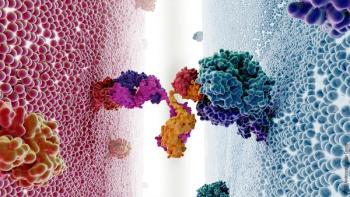
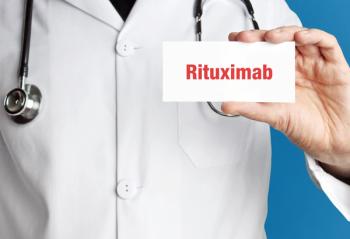
A rituximab and lenalidomide combination for treating non-Hodgkin lymphoma (NHL) could play a greater role in future clinical trials.
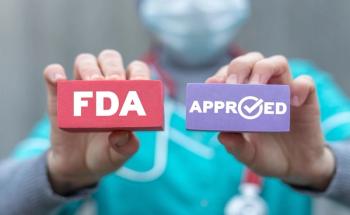
Interim data from the ECHELON-3 trial previously showed that adding brentuximab vedotin to lenalidomide and rituximab improved overall survival among patients who have relapsed or refractory large B-cell lymphoma (R/R LBCL).

Despite research showing the benefits of circulating tumor DNA as an indicator of disease remission in B-cell lymphoma, hurdles that include availability and cost remain to its widespread implementation.
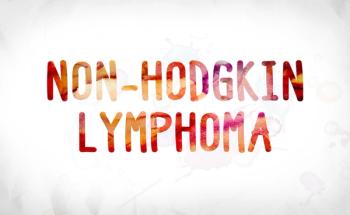
The CELESTIAL-301 trial evaluating SynKIR-310, a novel chimeric antigen receptor T-cell therapy, has dosed its first patient with relapsed/refractory B-cell non-Hodgkin lymphoma (B-NHL).


